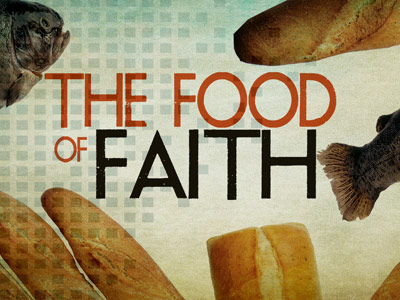-
Pray Practically Series
Contributed by Davon Huss on Jul 9, 2024 (message contributor)
Summary: Pray Practically focussing on Luke 11:3 (Material adapted from Bob Hostetler's book, The Red Letter Prayer Life; chapter 8 of the same title)
HoHum:
In the days of Emperor Marcus Aurelius, the Roman army was trapped by the wild tribes of Germany in high mountains where there was no water. The soldiers were choking to death when the Miletine Legion, which was largely Christian, asked if they might pray. When they knelt to pray the thunder was heard in the distance and rain poured down on the needy men. The Emperor renamed them the “Thundering Legion” and eased his persecution of Christians. The Lord supplied what they needed in answer to the prayers of his people.
WBTU:
Recite together the Model Prayer (Lord’s Prayer)
Started with “Our Father who art in heaven,” or “Our Father in heaven,” and then proceeded to “Hallowed be thy name,” or “Hallowed be your name”- May Your name be kept holy. Talked about “Thy Kingdom come,” or “Your Kingdom come”, then “Your will be done on earth as it is in heaven.” Or to put it another way, “Glorify Your name, spread Your Kingdom, accomplish Your will.” These are unnatural for us but these are a good place to start. The fourth petition takes a surprising turn. The Model prayer goes from the heavenly to earthly. He says we should pray, “Give us today our daily bread.” After instructing us to pray about the holiness of God’s name, the coming of His reign, and the accomplishment of His will, now this?
There is a slight difference between the wording of Matthew and Luke’s Model Prayers on this request. In Luke 11 after his disciples ask Jesus teach them to pray, he gives a Model Prayer there that is the same but scaled down. This petition in the middle is, “Give us each day our daily bread” (Luke 11:3). In any case, those few words from the prayer Jesus taught His disciples make it clear that praying for the most basic, practical, ordinary needs of daily life is perfectly consistent with praying also for such things as God’s reputation, kingdom and will. In other words, when we pray, Jesus says…
Thesis: Pray Practically focussing on Luke 11:3
1. Pray for our every need
We are in a different situation that those in 1st century Palestine. Palestine was one of the poorest areas in the Roman Empire. We have access to books- more than we can read. We have access to bread and many times the bread goes bad before we can eat it all. We have meat and vegetables in our freezer. A little change in our pockets, a few pairs of shoes in our closet, a car in our garage. Our standard of living is far removed from when Jesus first gave these instructions on prayer. When Jesus said to pray “Give us this day our daily bread,” He is urging us to depend on God for our most basic, elemental human needs. In the 1st century this was literally a prayer for bread. For us it is a reminder that we can’t even walk without God holding our hand. I think we pray best when we exhibit a day by day dependence on God for the most basic, elemental human needs. Oh sure, we can pull a frozen pizza from the freezer to eat tonight, but doesn’t God have his hand on this in some way? Long before Jesus taught his followers the Lord’s Prayer, God spoke these words to His people through Moses in Deuteronomy 8:10-14, 17-18: When you have eaten and are satisfied, praise the LORD your God for the good land he has given you. Be careful that you do not forget the LORD your God, failing to observe his commands, his laws and his decrees that I am giving you this day. Otherwise, when you eat and are satisfied, when you build fine houses and settle down, and when your herds and flocks grow large and your silver and gold increase and all you have is multiplied, then your heart will become proud and you will forget the LORD your God, who brought you out of Egypt, out of the land of slavery… You may say to yourself, “My power and the strength of my hands have produced this wealth for me.” But remember the LORD your God, for it is he who gives you the ability to produce wealth, and so confirms his covenant, which he swore to your ancestors, as it is today.
Louise Webb once had a missionary from Holland who was on furlough and she said grace before and after her meals. It is one thing to give thanks when we are hungry- and another thing to give thanks when we are full. It is a different story when we pray, “Give us this day our daily bread” when we don’t know where our next meal is coming from- and another thing to pray this just as sincerely when our cupboard is full. Jesus didn’t say just to pray this when in dire straights but all of the time. It is a prayer for all seasons because we should never say to ourselves, “My power and the strength of my hands have produced this wealth for me.” We should daily remember the Lord our God who gives us the ability to produce wealth, to buy bread, and even to chew it, swallow it, and digest it (in hospice know several where this is a major struggle).

 Sermon Central
Sermon Central



